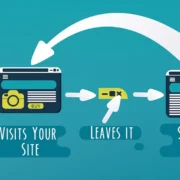The fundamental principle of journalism is that sources face retaliation or personal risk for sharing sensitive information. Encrypted messaging apps’ communications between journalists are confidential and secure. These apps employ end-to-end encryption, meaning the messages are encrypted on the sender’s device and can only be decrypted by the intended recipient’s device. In third party, the message service provider, can access messages’ content and intend intercepts encrypted data.
Safeguarding sensitive information
Investigative journalism often involves handling sensitive and confidential information, such as leaked documents, whistle-blower testimonies, or information related to national security or corporate scandals. Encrypted messaging apps provide a secure channel for journalists to receive and share this sensitive information without fear of interception or surveillance. Using encrypted messaging apps, journalist protects the integrity of their sources and the information they receive, ensuring that it remains confidential and secure throughout the reporting process.
Circumventing censorship and surveillance
Journalists face censorship, surveillance, and repression from authorities or powerful entities seeking to suppress free speech and investigative reporting. Encrypted messaging apps offer a means for journalists to communicate securely and evade censorship or surveillance measures. These apps often incorporate advanced features like metadata protection, which prevents the collection of metadata (sender/recipient information, timestamps, etc.) that could be used to track or monitor communications. Some encrypted messaging apps are decentralized, making them more resilient against censorship or attempts to shut down communication channels.
Enabling collaboration and coordination
Investigative journalism often involves collaboration between journalists, researchers, and sources from various locations. Encrypted messaging apps facilitate secure communication and coordination among these teams, allowing them to share information, coordinate efforts, and discuss sensitive matters without compromising the confidentiality of their work. These apps are particularly beneficial for cross-border investigations or when working with sources in high-risk environments, ensuring that sensitive information remains protected throughout the collaborative process.
Building trust with sources
Building trust with sources is essential for journalists, mainly when dealing with sensitive or high-stakes investigations. By using encrypted messaging apps, journalists demonstrate their commitment to protecting the anonymity and confidentiality of their sources, fostering a stronger sense of trust and encouraging sources to share valuable information this content. This trust is crucial for ensuring the accuracy and integrity of investigative reporting, as sources are more likely to provide candid and truthful information when they feel their identities and safety are safeguarded.
Ethical considerations and best practices
While encrypted messaging apps offer powerful tools for secure communication, their use in journalism raises ethical considerations. Journalists must carefully navigate issues related to source protection, information handling, and the potential misuse of these apps. Journalists need to follow best practices, such as verifying the identities of their sources, using secure channels for sensitive communications, and implementing robust security measures to protect their devices and digital assets.
Additionally, journalists should be aware of the limitations of encrypted messaging apps and understand that no technology is entirely foolproof. Additional security measures, such as secure file sharing, air-gapped devices, and physical security precautions, may be necessary in high-risk scenarios.









Comments